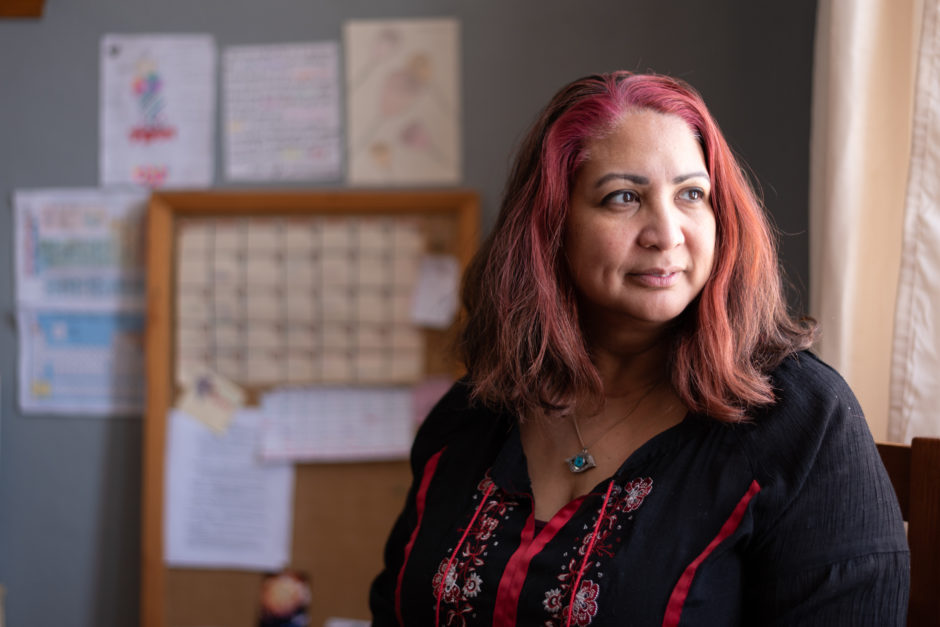April 3, 2019
Kris Alvarez remembers the night she drove into Saskatchewan.
Her family had immigrated to Canada from the Philippines in the 1970s, with work bringing them from Windsor, Ont., to Saskatchewan in 1974.
“My first recollection is being in the back of my parents’ Datsun, a little car, and it being the middle of the night and being an impatient little kid, wanting to be there already and asking every time I saw a little string of lights, ‘Is that Regina? Is that Regina?'”
Finally, she arrived at the age of six in the city that would become home.
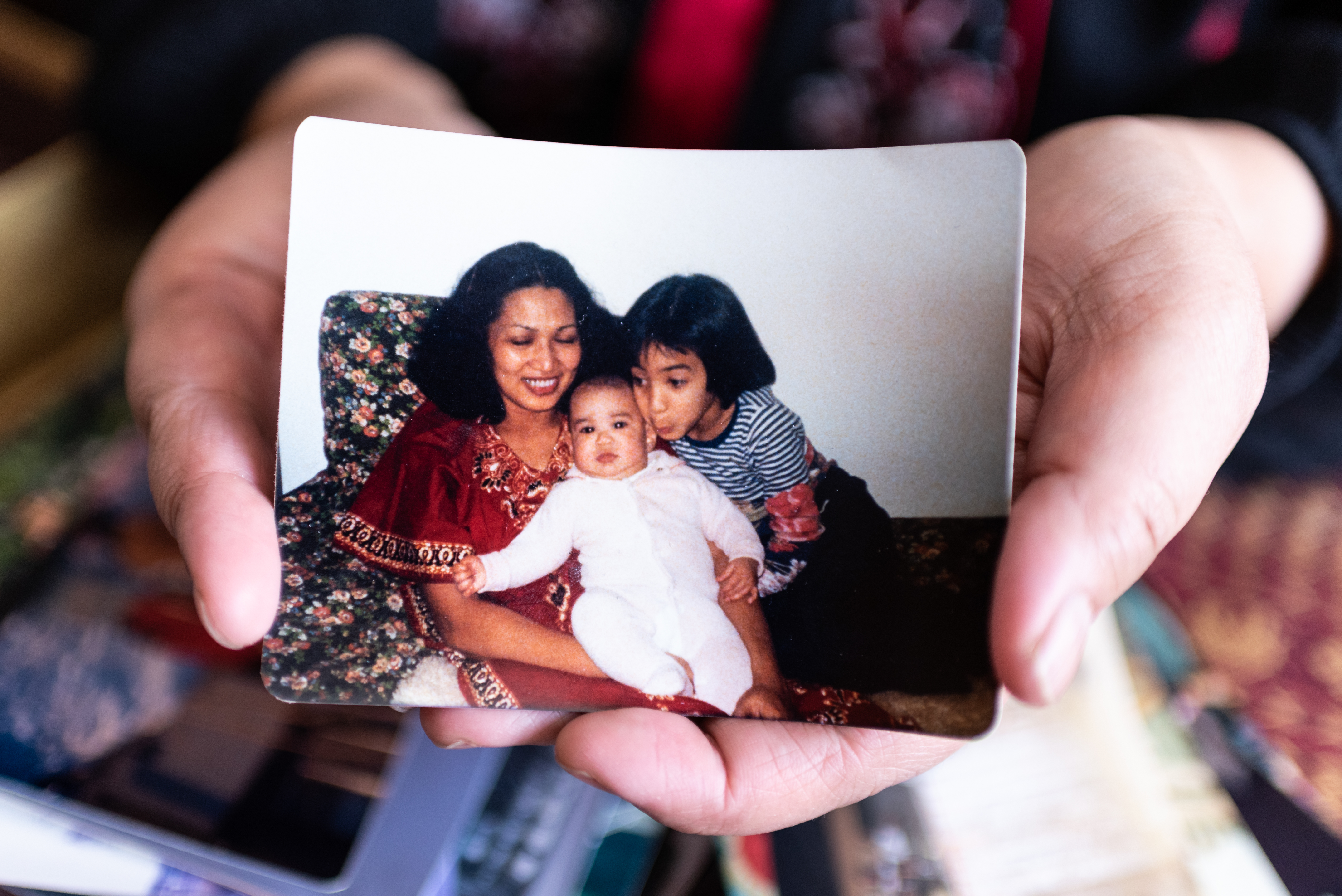
It was a far different city then, even more predominantly white, and Alvarez said the word “Filipino” was unknown to the other children.
“In the fall when I went to school, Grade 6, we were in the lineup to go into the school and someone turned around said, ‘What are you?’”
“I said, ‘I'm Filipina.’ And he said, ‘Like Philippian?’ And I said, ‘No, that's a book in the Bible.’ And everyone laughed. I remember being like, ‘OK, good, humor will help.’”
Her parents connected to the Philippine Cultural Society, where Alvarez learned folk dances and about her culture.
Filipino immigration has exploded over the last 10 years, increasing more than 300 per cent from 2007 to 2017.
For Alvarez, it’s a happy circumstance, bringing more Filipino people and stores to the province. But it can also bring up the challenges of having a duel identity in Canada.
“As soon as I tell someone I'm Filipino and they're like, ‘Oh no, you're not,’ I have to do this whole convincing them that I was born there. But as soon as they say ‘But do you speak Tagalog?’ and I say, ‘No,’ then it's like there's little demerit. ‘Well then, you’re not really brown.’"
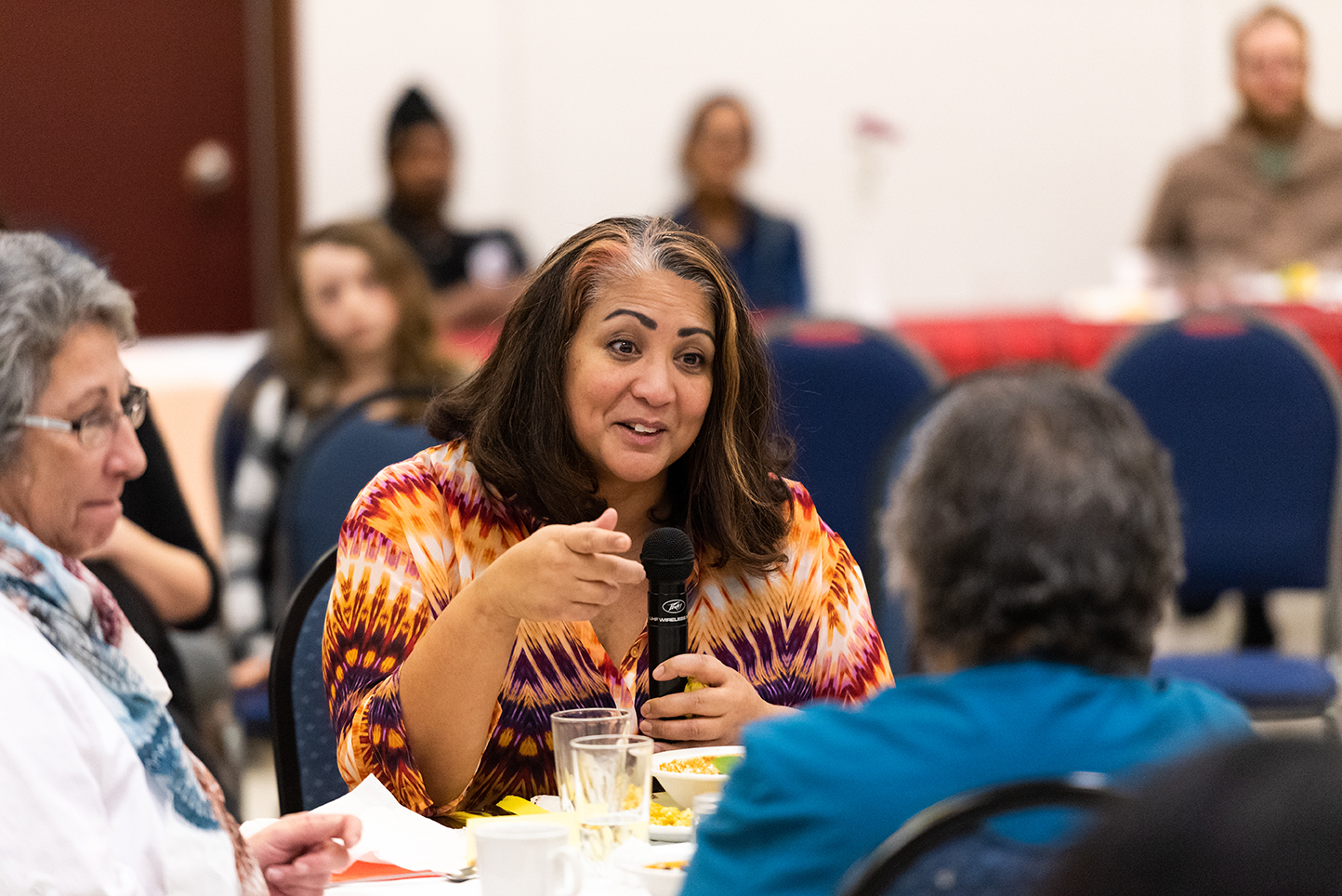
Alvarez is an artist, whose work crosses boundaries between theatre, music and dance, as she aims to spur the conversation between different communities in the city.
“Language feels sad to me right now,” she said. “With all my theatre projects to do with culture and identity, I started to realize it’s a sad thing for me that I don't have language as an identifiable part of me.”
It makes her hope to connect with her own language and become more adept at speaking it.
Here, artistic organizations like Curtain Razors or Common Weal Community Arts allow her the freedom to pursue projects aimed at exploring interconnectedness, or driving conversations about race, privilege and culture.
“The style, the rhythm of Regina, I realized, is my pace, that's what I need,” she said, explaining it's one reason she came back to the city after moving for nearly a decade to Montreal.
In one of her recent projects, she brought together immigrant and Indigenous kids, to see if they could come to some shared understanding and bridge a divide that exists between the two groups.
“I just want to continue doing this art that I’ve never done before, where it straddles community outreach/art for art’s sake.”
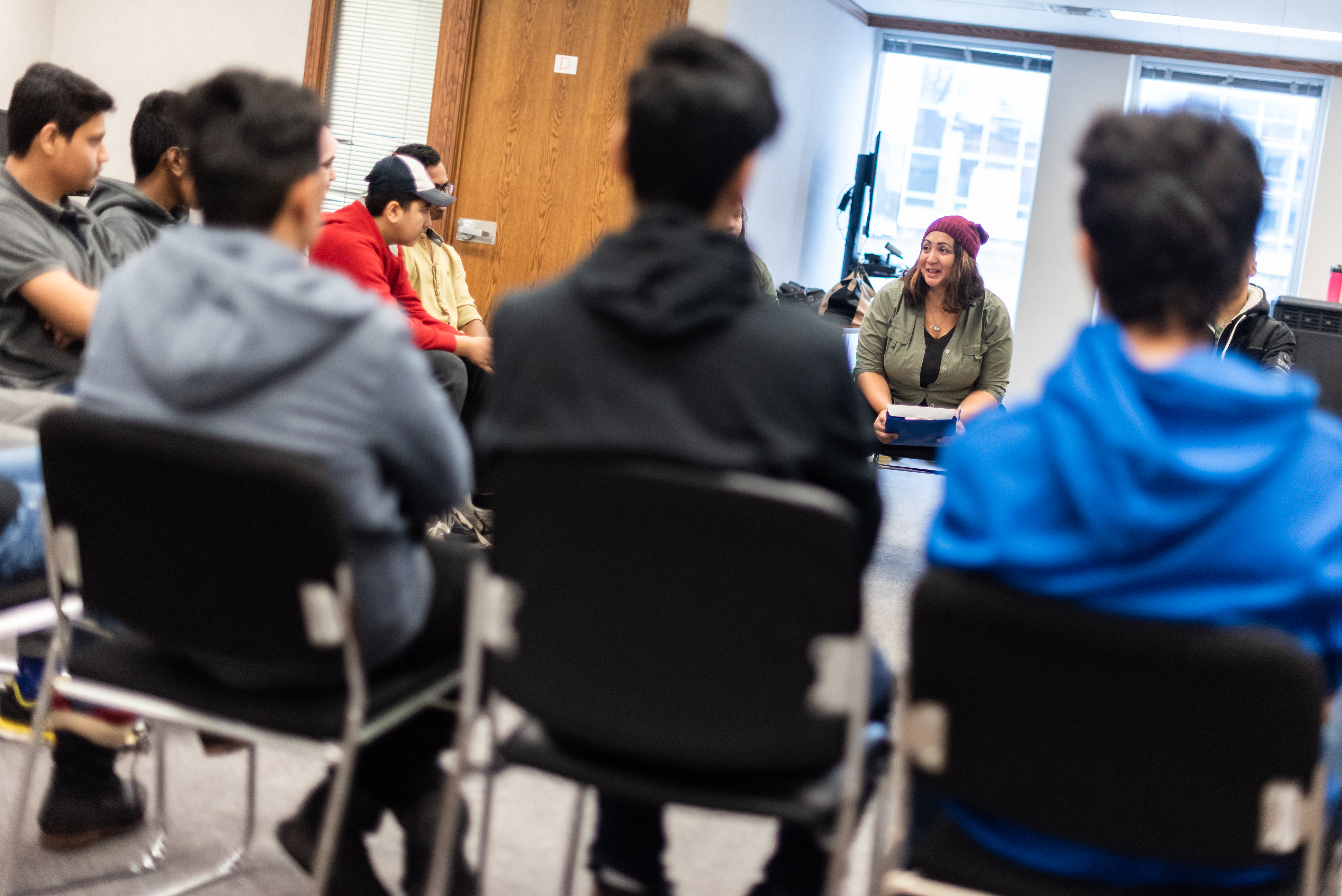
Pursuing art is something she doesn’t take for granted. Her parents originally wanted her to be a nurse, but they allowed her to pursue her own career dreams. And as they see her happiness and success, they’ve cheered her on.
“My mom’s a really proud Filipino mom. She would always be happy to see me on the stage or doing some show or being in the paper. That’s her favourite: when I’m in the (Regina) Leader-Post,” said Alvarez.
“We talk about the immigrant experience, this idea: you feel loyalty to your parents who forged to this country to get you a better life, and now I’m just an artist.”
She tells her parents she’s fortunate they brought her to this place, to allow her to do what she’s doing.
She wants her children to feel how art can be a part of their life. As she said, “I hope they take away that the world has lots of possibilities for them.”
Her mother hasn’t given up on that stereotypical immigrant dream entirely. She works on Alvarez’s daughters, suggesting they pursue a career in medicine. And Alvarez realizes in this world, anything is possible, just as it was for her.
“They’ll probably be engineers and doctors, just watch.”
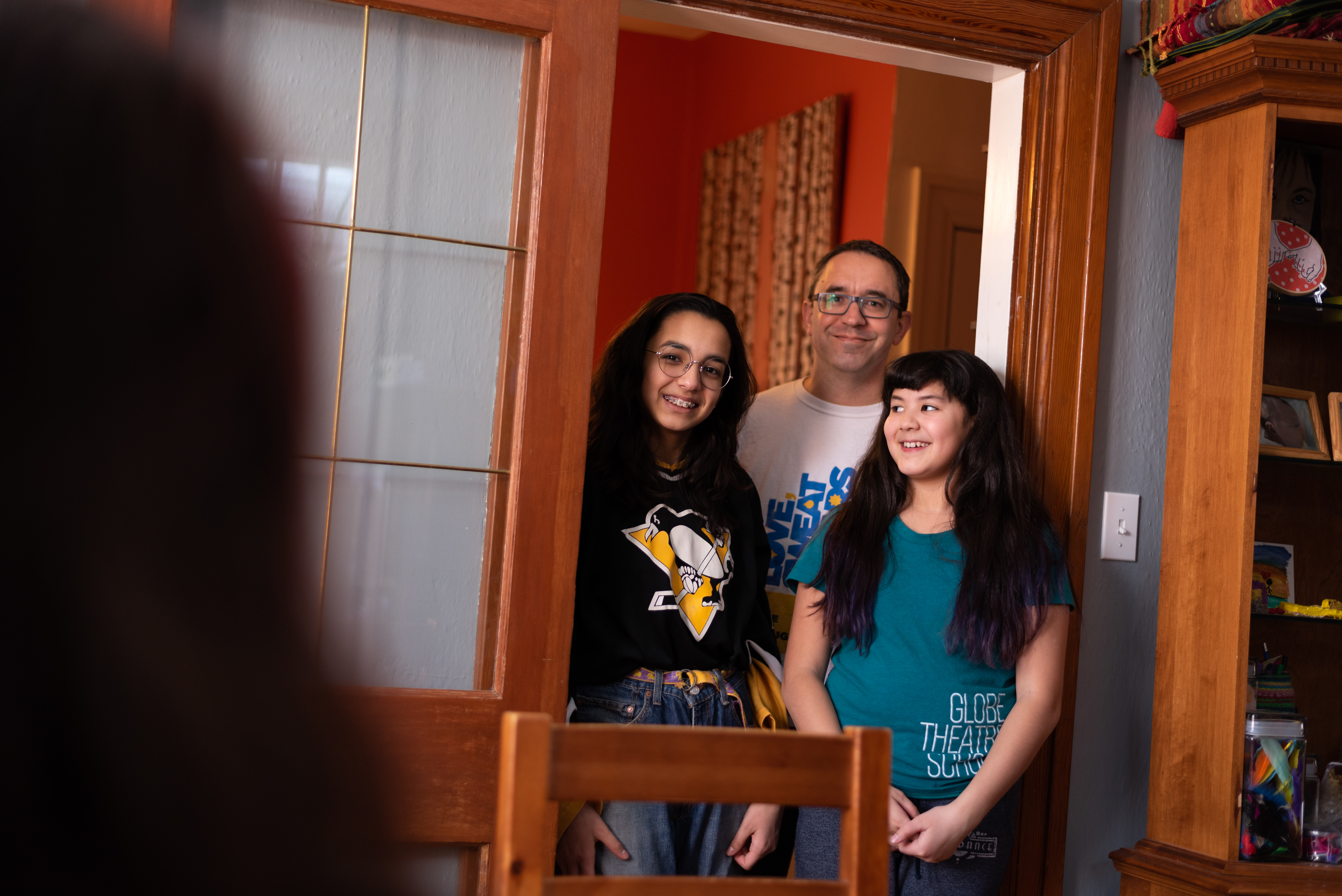
The Finding Home series profiles eight people who have found a sense of belonging and community in Regina. Together, they are part of the ever-changing face of this province. Read the other profiles here.
You can also enter a contest telling us what makes Regina home to you.
